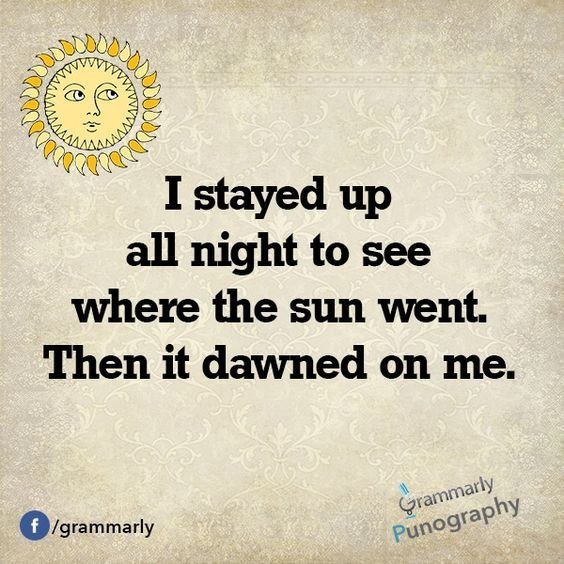|
Observant writers and grammarians see words as more than letters and
syllables that help to form an idea. We view them as paring knives and
brush strokes that define and shape thoughts that connect with other
people.
For that reason, we pay close attention to word choices and their nuances.
Common speech sometimes switches certain words to mean the same things. In
thoughtful writing, however, we understand the differences and apply them
for more-exact meanings.
Would
and used to are a pair that can sometimes confuse in referring to
past actions that are now concluded. They tend to be swapped freely when in
certain contexts they should maintain separate duties. The following
guidelines will help distinguish them.
1. Would should be used only if the past time frame is established
up front. Used to does not require this.
Examples
Grammatical:
We used to go to the movies every Saturday when I was a kid back
in the ’70s.
Not grammatical:
We would go to the movies every Saturday when I was a kid back in the ’70s.
Note the difference in the second example if we introduce the time early
on:
Grammatical:
When I was a kid back in the ’70s, we would go to the movies every Saturday.
By starting the sentence in the past, we set up the grammatical inclusion
of would.
2. Would is not used with stative verbs, i.e., those that describe
a state (e.g., feel, love, know) rather than an activity (e.g., run, jump, write).
Examples
Grammatical:
When I worked at the arena, I used to know the booking agent who
could get backstage VIP passes for me and my friends.
Not grammatical:
When I worked at the arena, I would know the booking agent who
could get backstage VIP passes for me and my friends.
3. Used to describes a past state in a simple, declarative
statement, where would grammatically would not function.
Examples
Grammatical in the past tense:
I used to be a football running back.
Not grammatical in the past tense:
I would be a football running back.
Grammatical in the past tense:
She used to lead the company as its CEO.
Not grammatical in the past tense:
She would lead the company as its CEO.
Attention to subtleties differentiates careful writers from casual ones.
Understanding when and how to apply would and used to
further shows your mastery of English in composing crisp and meaningful
content.
|
|
View this article on our website
|
|
Pop Quiz
Choose the grammatical use of would or used to in the following sentences. Answers are at the bottom of the newsletter.
1) When he was a supervisor at his last job, he (would / used to) close the
warehouse at 6 p.m. sharp.
2) We (would / used to) play hopscotch every day during the summer.
3) Call me crazy, but when I was in college I (would / used to) love to
write the longest papers in all of my classes.
4) Work (would / used to) get so busy that we (would / used to) skip lunch
at least twice a week.
|
Free BONUS Quiz for You!
[[firstname]], because you are a subscriber to the newsletter, you get access to one of the Subscribers-Only Quizzes. Click here to take a Lie vs. Lay Quiz and get your scores and explanations instantly!
We will be adding many more quizzes this year to our already substantial list of quizzes. If you have suggestions for topics we have not yet covered, please send us a message at help@grammarbook.com.
|
Hundreds of Additional Quizzes
at Your Fingertips
Subscribe now to receive hundreds of additional English usage quizzes not found anywhere else!
For Instructors and Employers, you may assign quizzes to your students and employees and have their scores tallied and organized automatically! Let GrammarBook.com take the hassle out of teaching English!
"Fun to test my Skills"
"The explanations really help ... thanks!"
"I download the quizzes for my students who don't have computer access."
|

|
Don't need all the quizzes?
You can now purchase the same quizzes individually for ONLY 99¢ each.
Purchase yours here.
|
If you think you have found an error in a quiz, please email us at help@grammarbook.com
|
 |
The Blue Book of Grammar and Punctuation
by Jane Straus, Lester Kaufman, and Tom Stern |
The Authority on English Grammar! Eleventh Edition Now Available
An indispensable tool for busy professionals, teachers, students, homeschool families, editors, writers, and proofreaders.
Available in print AND as an e-Book! Over 2,000 copies are purchased every month!
The publisher of The Blue Book, Jossey-Bass, A Wiley brand, is offering a 35 percent discount for those of you who order the book through Wiley.com. Shipping and tax are not included. Simply go to bit.ly/1996hkA and use discount code E9X4A.
Offer expires December 31, 2018.
|
Wordplay

Pop Quiz Answers
1) When he was a supervisor at his last job, he would
close the warehouse at 6 p.m. sharp.
2) We used to play hopscotch every day during the summer.
3) Call me crazy, but when I was in college I used to love
to write the longest papers in all of my classes.
4) Work used to get so busy that we would skip lunch at least twice a week.
|
 |
English In A Snap:
68 One-Minute English Usage Videos FREE |
Learn all about who and whom, affect and effect, subjects and verbs, adjectives and adverbs, commas, semicolons, quotation marks, and much more by just sitting back and enjoying these easy-to-follow lessons. Tell your colleagues (and boss), children, teachers, and friends. Click here to watch.
|
|





